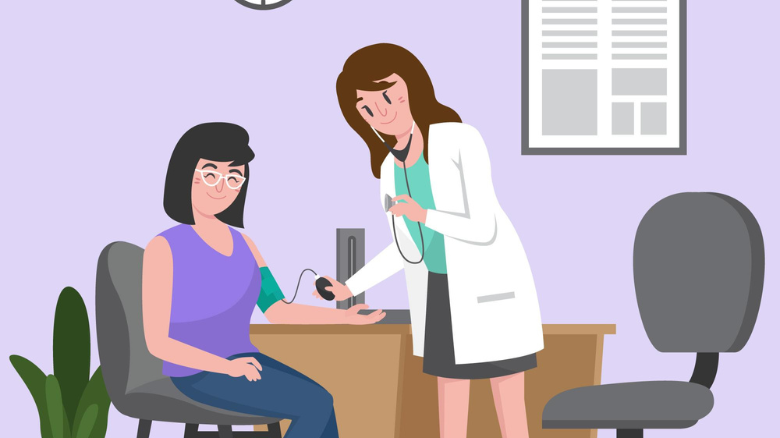
Infertility can be a challenging journey, often filled with emotional and physical hurdles. Fortunately, modern medicine offers solutions like In Vitro Fertilisation (IVF), a beacon of hope for many couples. As you delve into the complexities of IVF, understanding the pivotal role that gynaecologists play becomes essential. These specialists guide couples from the initial diagnosis through the intricate process of assisted reproduction, offering expertise and reassurance every step of the way. But what exactly does IVF entail, and how do gynaecologists contribute to its success?
Have you ever wondered what really goes on behind the scenes of IVF, and how a gynaecologist's expertise can make all the difference in this life-changing journey?
Key Takeaways
- Grasp the fundamentals of IVF and its significance in overcoming infertility
- Discover the crucial role gynaecologists play in the IVF process
- Learn about the procedures, success rates, and risks associated with IVF
- Explore common questions and insights into reproductive health
- Understand the emotional and physical journey couples face during IVF
Understanding IVF and the Role of Gynecologists
Embarking on the path of IVF can be both an exciting and intimidating experience. At its core, IVF is a process where an egg is fertilised by sperm outside the body, in a controlled laboratory environment. This technique assists couples facing infertility, providing them with an opportunity to conceive. But beyond the scientific procedure lies a deep commitment from gynaecologists, who serve as both guides and allies throughout this journey.
In the initial stages of IVF, a gynaecologist conducts a thorough evaluation of the couple's fertility health. This involves diagnostic tests to assess hormone levels, ovarian function, and sperm quality. With these insights, a tailored treatment plan is developed, often incorporating lifestyle recommendations to enhance fertility outcomes. Gynaecologists also provide crucial emotional support, helping couples navigate the myriad of emotions that arise during this time.
As the process progresses, gynaecologists play a pivotal role in the retrieval of eggs and the implantation of embryos. Precision and care are paramount during these stages as they directly impact the success rates of IVF. After the embryos are implanted, gynaecologists continue to monitor the pregnancy closely, ensuring both the mother's and baby's well-being.
Moreover, gynaecologists are instrumental in addressing the potential risks associated with IVF. They educate couples about possible complications such as ovarian hyperstimulation syndrome (OHSS) and multiple pregnancies. By offering comprehensive guidance and answering any questions, they help demystify the process, making it less overwhelming.
Ultimately, the role of a gynaecologist in IVF is multifaceted. They are not just medical professionals but are partners in the journey towards parenthood, offering expertise, support, and compassion. As you consider or embark on this pathway, understanding the depth of their contribution can provide reassurance and clarity.
IVF Procedures and Success Rates
The process of IVF involves several key stages, each meticulously planned and executed. From stimulating the ovaries to retrieving eggs, fertilisation, and embryo transfer, each step requires precision and expertise. Understanding these procedures helps demystify the process and sets realistic expectations.
Ovarian stimulation is the first step, where medications encourage the ovaries to produce multiple eggs. This increases the chances of successful fertilisation. Once the eggs mature, a minor surgical procedure retrieves them from the ovaries. In a laboratory setting, the eggs meet sperm, and fertilisation occurs. The resulting embryos are monitored for several days before one or more are transferred into the uterus.
Success rates for IVF can vary, influenced by factors such as age, fertility health, and lifestyle. On average, women under 35 have a 40% chance of conceiving per IVF cycle, while the rate decreases as age increases. Gynaecologists provide statistical insights tailored to individual circumstances, helping couples understand their probabilities and make informed decisions.
Risks and Considerations
While IVF offers hope, it's essential to be aware of potential risks and considerations. Ovarian hyperstimulation syndrome (OHSS) is a possible complication, resulting from excessive response to fertility drugs. Symptoms can range from mild abdominal discomfort to severe pain and swelling. Multiple pregnancies, although less common with advanced techniques, pose risks to both mother and babies.
Emotional and financial considerations also play a significant role. IVF can be a costly endeavour, often requiring multiple cycles. The emotional toll can be significant, with the highs of hope and the lows of potential disappointment. Gynaecologists provide resources and support, helping couples navigate these challenges with informed guidance and compassionate care.
Common Questions Answered
Couples embarking on IVF often have numerous questions, seeking clarity on various aspects of the process. Common inquiries include understanding the timeline of IVF cycles, the impact of lifestyle choices, and the potential for genetic screening of embryos. Gynaecologists offer detailed explanations, empowering couples with knowledge and confidence.
Questions about the emotional journey are equally important. Couples wonder how to manage stress, communicate effectively, and maintain a sense of normalcy throughout the process. Gynaecologists often recommend support groups or counselling, providing a safe space to share experiences and emotions.
The Emotional and Physical Journey
IVF is not just a medical procedure but a profound emotional and physical journey. Couples experience a rollercoaster of emotions, from hope and anticipation to anxiety and uncertainty. The physical demands, including frequent medical appointments and hormone injections, add to the complexity of the experience.
Gynaecologists play a vital role in supporting couples through these challenges. Their expertise extends beyond medical knowledge, offering empathy, encouragement, and reassurance. By fostering a trusting relationship, they help couples navigate the intricacies of IVF with resilience and hope.
Conclusion
Understanding IVF and the role of gynaecologists is pivotal for couples considering this path. From the initial diagnosis to the final stages of pregnancy, gynaecologists offer invaluable expertise and support. As you reflect on your journey, consider the profound impact they have on the road to parenthood.
Harsha Hospitals offers expert care in IVF and gynecology with advanced fertility treatments, personalized planning, and compassionate support to help couples achieve their dream of parenthood in a safe, trusted environment.


